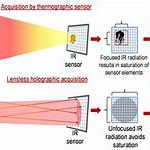EMF radiation, also known as electromagnetic field radiation, is a form of energy that is emitted by electronic devices such as smartphones, laptops, and Wi-Fi routers. Although it is a type of non-ionizing radiation, there is research suggesting that prolonged exposure to EMF radiation may be harmful to human health, causing symptoms such as headaches, fatigue, and sleep disturbances. In this article, we will explore the different EMF radiation symptoms and how they can affect us.
Contents
What is EMF Radiation?
Electromagnetic fields (EMF) are invisible fields of energy that surround electronic devices, power lines, and other sources of technology. They are generated by the movement of electric charges and can vary in intensity and frequency. EMF radiation is a type of non-ionizing radiation that has been linked to a wide range of health effects, including cancer, neurological disorders, and reproductive issues.
Common Symptoms of EMF Exposure
While the long-term effects of EMF exposure are still being studied, there are several common symptoms that people may experience when exposed to high levels of EMF radiation. These include:
Headaches and Dizziness
One of the most common symptoms of EMF exposure is headaches or dizziness. These symptoms can be caused by the disruption of the body’s natural electrical signals, which can affect brain function and lead to discomfort and nausea.
Fatigue and Insomnia
EMF exposure has also been linked to fatigue and insomnia. This is because EMF radiation can disrupt the body’s natural sleep-wake cycle and interfere with the production of melatonin, the hormone that regulates sleep.
Skin Rash and Burning Sensation
Some people may also experience skin rash, itching, and a burning sensation when exposed to high levels of EMF radiation. This is because the radiation can cause damage to the skin cells and trigger an immune response.
Tingling and Numbness
EMF exposure can also cause tingling and numbness in the extremities, such as the fingers and toes. This is because the radiation can interfere with nerve function and disrupt the body’s natural electrical signals.
Memory Loss and Cognitive Impairment
High levels of EMF radiation have also been linked to memory loss and cognitive impairment. This is because the radiation can affect brain function and lead to a decline in cognitive abilities over time.
How to Reduce Your Exposure to EMF Radiation
While it may be impossible to completely eliminate your exposure to EMF radiation, there are several steps you can take to reduce your risk:
Limit Your Use of Electronic Devices
Limit your use of electronic devices, such as cell phones, laptops, and tablets, especially when they are in close proximity to your body. This is because these devices emit high levels of EMF radiation and can be a significant source of exposure.
Use EMF Protection Products
There are several EMF protection products on the market, such as EMF shields and protective cases, that can help reduce your exposure to radiation. These products work by absorbing or deflecting the radiation away from your body.
Practice Safe Computing
When using electronic devices, it is important to practice safe computing habits, such as taking frequent breaks, using a wired internet connection, and avoiding placing your laptop directly on your lap.
Create a Low-EMF Environment
Create a low-EMF environment in your home by reducing your use of wireless technology, such as Wi-Fi routers and cordless phones, and opting for wired alternatives instead. You can also use shielding materials, such as aluminum foil or EMF curtains, to block the radiation from entering your living space.
Get Involved in EMF Awareness
Finally, get involved in EMF awareness and education initiatives to help spread the word about the potential dangers of EMF radiation and advocate for more protective measures.
FAQs for EMF Radiation Symptoms
What is EMF radiation?
EMF stands for electromagnetic fields, which are fields of energy that are created by the movement of electrical charges. EMF radiation comes from a variety of sources, including power lines, cell phones, Wi-Fi routers, and other electronic devices.
What are the symptoms of exposure to EMF radiation?
Exposure to EMF radiation can cause a range of symptoms, including headaches, fatigue, dizziness, and difficulty sleeping. Some people may also experience skin rashes, nausea, or muscle pain.
Can exposure to EMF radiation be harmful to my health?
Some studies suggest that long-term exposure to high levels of EMF radiation can increase the risk of certain health problems, such as cancer and infertility. However, the evidence is still limited, and more research is needed to fully understand the potential health risks.
What can I do to reduce my exposure to EMF radiation?
There are several steps you can take to reduce your exposure to EMF radiation, such as using a hands-free headset or speakerphone when using your cell phone and turning off Wi-Fi and other electronic devices when they are not in use. You can also choose to use products that are designed to reduce or block EMF radiation.
Can EMF radiation affect my sleep?
Yes, exposure to EMF radiation can disrupt your sleep patterns, making it difficult to fall asleep or stay asleep. This is especially true if you sleep with electronic devices, such as a cell phone or tablet, close to your bed.
Should I be concerned about EMF radiation from power lines?
While research is ongoing, some studies suggest that long-term exposure to high levels of EMF radiation from power lines may increase the risk of certain health problems, such as leukemia and other cancers. If you live near power lines, you may want to take extra steps to reduce your exposure to EMF radiation.




.jpg)


